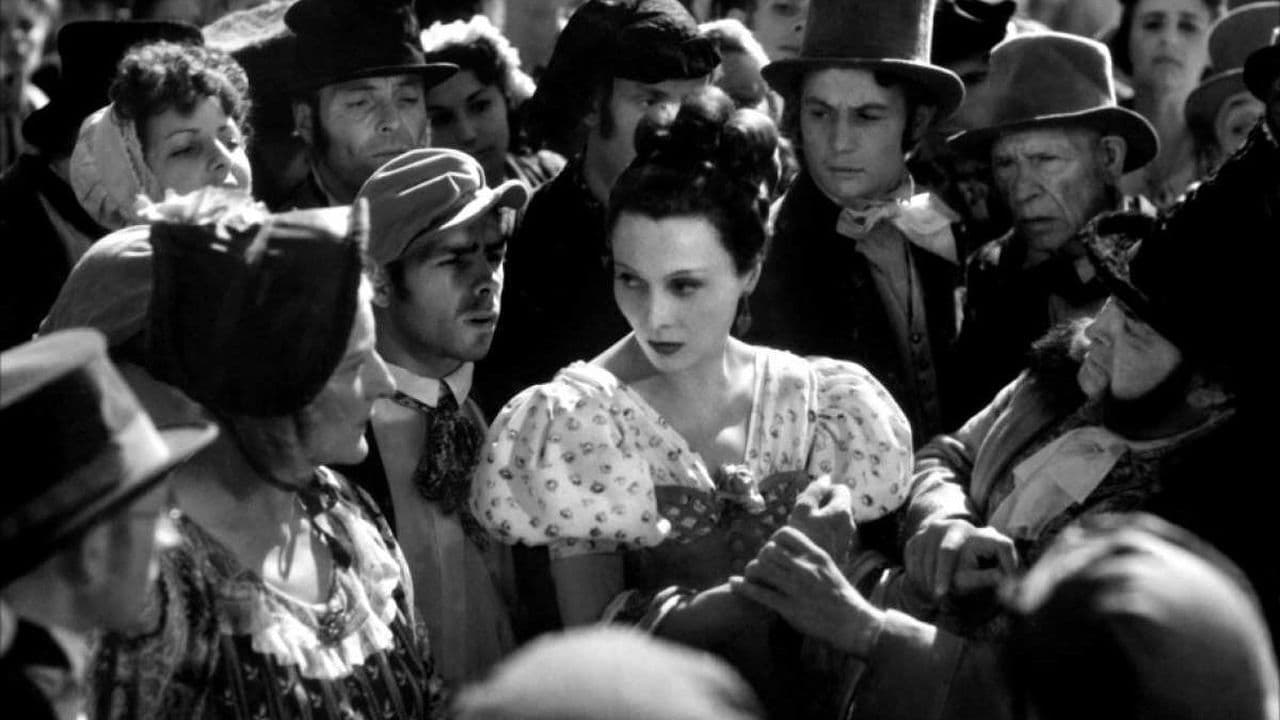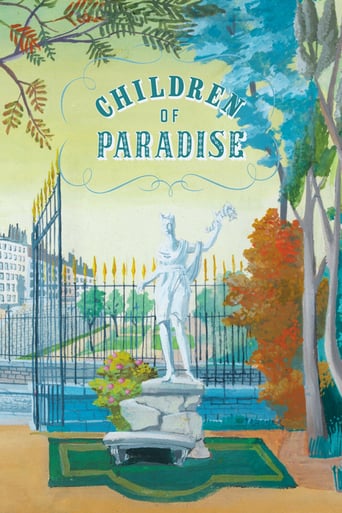



Tied for the best movie I have ever seen
This movie is the proof that the world is becoming a sick and dumb place
View MoreHighly Overrated But Still Good
Yes, absolutely, there is fun to be had, as well as many, many things to go boom, all amid an atmospheric urban jungle.
View MoreThe theatrical life of a beautiful courtesan (Arletty) and the four men who love her: the mime Baptiste Debureau (Jean-Louis Barrault), the actor Frédérick Lemaître (Pierre Brasseur), the thief Pierre François Lacenaire (Marcel Herrand), and the aristocrat Édouard de Montray (Louis Salou).This film is often called the French "Gone With the Wind". That seems really insulting. While the comparison makes sense in vague terms -- both are long, epic stories about a woman with multiple loves -- to compare this artistic vision to the Civil War melodrama is unfair. One clearly is better than the other. (Hint: The French one.) What is most incredible about this film is its creation during the Nazi occupation. How is it possible they were able to get such a great film, and such a large production, done while being oppressed? Apparently resistance fighters worked on the set, too, which seems worthy of a documentary or two.
View MoreShot during the German-occupation of France, Children Of Paradise is a film where its historical context feeds into its point and purpose. While on-screen it featured aristocrats concerned with love, on set the crew were hiding from the Nazis and concerned with their next meal. It's a surprise that their anxiety didn't transfer over onto the otherwise leisurely film. It's unusually long, especially as it's in two parts where the first ends rather anti-climatically. But its images are beautifully textured, especially in its simple but adventurous shooting. However, although the network of characters is great, I was never too invested in the protagonist or the theme. Instead, it's all about its lush bittersweet tone and that's exactly how its theme is treated. It's a good film to watch in reference to those it inspired.8/10
View MoreAn epic investigation of the blurred lines between life and the performance space, Les Enfants du Paradis is almost surmised within its first shot. Garance earns a dubious living allowing men to come and look at her naked. Yet the men can't quite see her - she sits in a barrel of water. All the while she looks at herself - her face - in a mirror. This unmediated self-examination whilst being risqué but not absolutely honest with others is examined across a handful of characters, beginning with a blind beggar who is not blind and finishing with an entire population adopting the character of one individual.It is also the nature of art - that in order to examine people one must take recourse to what might seem an unnatural technique. This is clear in the acting and mime of the two stages of the neighbouring theatres and underlined in the persistent transgression of the fourth wall. Most clearly and simply the two celebrated actors cover their faces with paint-as-mask to achieve greatness - white for the mime, black for Otello.The performances are powerful, if mannered for the time, with the exception of Arletty as Garance who manages to be arch and seductive but warm, haughty and fragile all at the same time, an unrepeatable modern performance. Though long, the film feels like it ought to be longer. 7/10
View MoreIt is said to be the greatest French film ever made. That is was made in occupied France is amazing. That it was made with Jews being sought by Nazis, with resistance fighters and Nazi-collaborators side-by-side, and with starving stage hand that stole food before it was filmed, is also fascinating. That four of the main characters in the film are historically real adds to the charm.The film is long and contains many scenes, but they are unified as a whole to tell a comic tragedy of 19th Century Paris.We see a beautiful Garboesque woman, Arletty, who glides across the stage. We are mesmerized by Jean-Louis Barrault playing the mime Baptiste Debureau, who is seeking happiness, but loses out to a thief (Marcel Herrand), an actor (Pierre Brasseur), and an aristocrat (Louis Salou), who also seek her hand.The street scene where the mime saves Garance (Arletty) from a charge of theft is priceless - true artistry! When Lemaître (Brasseur) rewrote a play in progress, it was incomparable.The tragedy orchestrated by Lacenaire (Herrand), and the resulting infidelity and murder, was the act of a true lover.Director Marcel Carné and writer, ne poet, Jacques Prévert, give us a film that is dazzling and captivating. It is a mystery to me why it is not one of the 1001 Movies You Must See Before You Die. It truly is.Yes, it is over three hours, but the time is fleeting.
View More